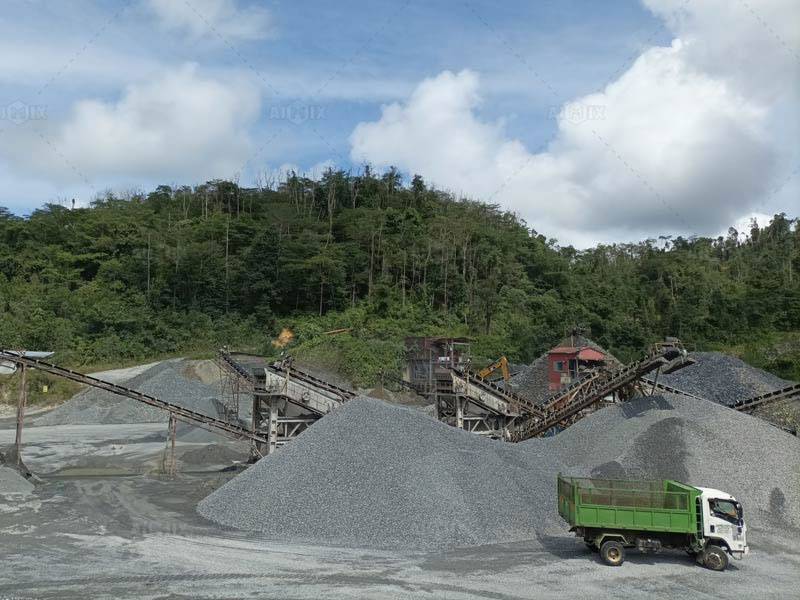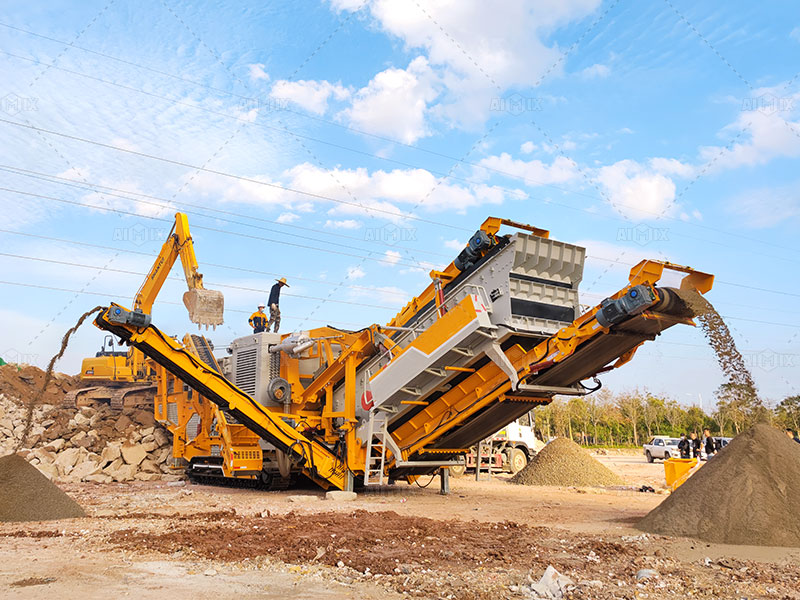In the dynamic landscape of industrial processes, the integration of automated control systems has emerged as a revolutionary force, significantly enhancing efficiency, precision, and overall productivity. Within the realm of crushing plants, the application of automated control systems has brought about transformative changes, revolutionizing the way raw materials are processed.
Introduction
Crushing plants play a pivotal role in various industries, from mining to construction, providing the essential groundwork for the production of aggregates and building materials. Traditionally, these limestone crusher plants required meticulous manual operation, leaving room for inefficiencies, errors, and increased operational costs. The advent of automated control systems has heralded a new era, reshaping the crushing plant landscape.

Enhanced Efficiency and Precision
One of the paramount advantages of automated control systems in mobile crusher plants is the unparalleled enhancement of operational efficiency and precision. These systems employ advanced algorithms and real-time monitoring, allowing for optimal adjustment of various parameters such as feed rate, crusher settings, and material flow. As a result, the crushing process becomes finely tuned, minimizing waste and maximizing the production of high-quality aggregates.
Real-Time Monitoring and Data Analysis
Automated control systems provide real-time monitoring capabilities, offering operators a comprehensive view of the entire crushing process. Sensors and instruments integrated into the system continuously collect data on variables like crusher load, material hardness, and conveyor speeds. This wealth of real-time data facilitates quick decision-making, enabling operators to identify and address potential issues promptly. Moreover, the data collected can be analyzed to optimize plant performance over the long term.

Remote Operation and Control
The implementation of automated control systems allows for remote operation and control of crushing plants. This not only enhances safety by reducing the need for on-site personnel but also extends operational hours, improving overall plant utilization. Remote monitoring enables operators to make adjustments or troubleshoot issues from a centralized location, minimizing downtime and increasing the plant’s availability.
Energy Efficiency and Cost Savings
Automated control systems contribute significantly to energy efficiency in mobile jaw crushing plant. By optimizing various parameters in real-time, these systems ensure that energy is utilized judiciously throughout the crushing process. This not only reduces operational costs but also aligns with sustainable practices by minimizing the environmental footprint of crushing plant operations.
Fault Detection and Predictive Maintenance
A key feature of automated control systems is their ability to detect faults and predict maintenance needs. Through continuous monitoring, the system can identify deviations from optimal performance, signaling potential issues before they escalate into critical problems. Predictive maintenance schedules can then be established, reducing unplanned downtime and extending the lifespan of critical components.
Conclusion
In conclusion, the integration of automated control systems in crushing plants represents a paradigm shift in the way raw materials are processed across industries. The benefits extend beyond mere operational efficiency to encompass enhanced safety, reduced environmental impact, and long-term cost savings. As technology continues to evolve, the mobile impact crusher plant industry is poised for even greater advancements, with automated control systems at the forefront of innovation. Embracing this transformative technology is not just a choice but a necessity for those seeking to thrive in the ever-evolving landscape of industrial processes.

